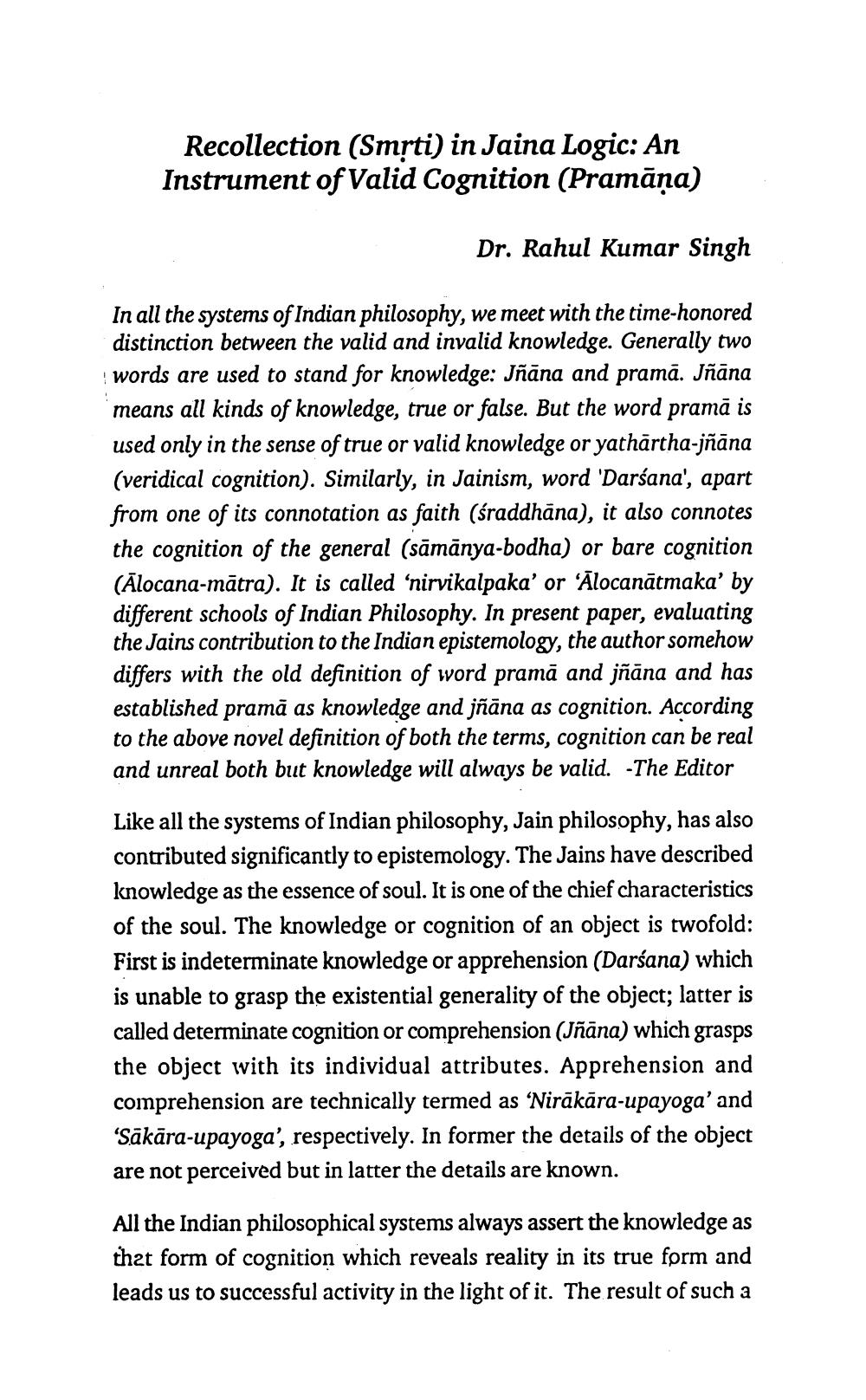________________
Recollection (Smrti) in Jaina Logic: An Instrument of Valid Cognition (Pramāņa)
Dr. Rahul Kumar Singh
In all the systems of Indian philosophy, we meet with the time-honored distinction between the valid and invalid knowledge. Generally two words are used to stand for knowledge: Jñāna and pramā. Jñāna means all kinds of knowledge, true or false. But the word pramā is used only in the sense of true or valid knowledge or yathārtha-jñāna (veridical cognition). Similarly, in Jainism, word 'Darśana', apart from one of its connotation as faith (śraddhāna), it also connotes the cognition of the general (sāmānya-bodha) or bare cognition (Alocana-mātra). It is called 'nirvikalpaka' or 'Alocanātmaka' by different schools of Indian Philosophy. In present paper, evaluating the Jains contribution to the Indian epistemology, the author somehow differs with the old definition of word pramā and jñāna and has established pramā as knowledge and jñāna as cognition. According to the above novel definition of both the terms, cognition can be real and unreal both but knowledge will always be valid. -The Editor
Like all the systems of Indian philosophy, Jain philosophy, has also contributed significantly to epistemology. The Jains have described knowledge as the essence of soul. It is one of the chief characteristics of the soul. The knowledge or cognition of an object is twofold: First is indeterminate knowledge or apprehension (Darśana) which is unable to grasp the existential generality of the object; latter is called determinate cognition or comprehension (Jñāna) which grasps the object with its individual attributes. Apprehension and comprehension are technically termed as “Nirākāra-upayoga'and 'Sākāra-upayoga', respectively. In former the details of the object are not perceived but in latter the details are known.
All the Indian philosophical systems always assert the knowledge as that form of cognition which reveals reality in its true form and leads us to successful activity in the light of it. The result of such a




